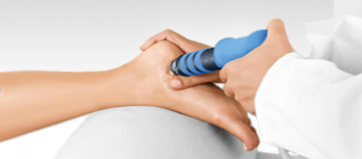Erich Fromm distinguished two types of aggression: benign, which serves to protect one's interests, property and life, and malignant, which is an acquired pathological model of behavior. In the second case, in order to raise his own authority, a person can humiliate, insult, beat others, and exert psychological pressure on them. What leads to bouts of aggression? How to deal with them?
Types of aggression
The psychology of deviant behavior is a relatively new branch of psychology that deals with the study of behavior that does not fit into the framework of law, morality and ethics. It is under her competence that aggressiveness falls.
Psychologist E. Bass has compiled an expanded classification of aggression. He pointed out that in terms of purposefulness, hostility is divided into 2 types:
- Instrumental aggression. It serves as a tool to achieve a goal. For example, my goal is to get on the bus, but all the seats are occupied, I can quarrel with someone so that he would give me his. It is a spontaneous attack of hostility directed at a random person;
- Targeted (motivated) aggression - pre-planned actions aimed at a specific object (to take revenge on a partner for treason; watch the offender after school in order to hit back; deliberately humiliate, insult a person who is unpleasant to the aggressor). The purpose of such an act is to cause physical or mental harm. Motivated aggression is more often shown by people who grew up in an unfavorable social environment, deprived of normal upbringing, attention and parental care.
Causes of sudden outbursts of aggression

Unmotivated aggression can occur for a number of psychological reasons, and also be a symptom of a serious illness.
Psychological factors include:
- Fast paced life;
- A large number of responsibilities;
- Burnout, serious problems at work;
- Lack of sleep, severe fatigue;
- Wrong upbringing.
Outbursts of aggression can be a symptom of diseases such as:
- Brain tumor;
- Hormonal failure, thyroid disorders;
- Alzheimer's disease;
- Post-traumatic stress disorder;
Mental disorders accompanied by imbalance and sudden acts of violence:
- Dissocial personality disorder (sociopathy, psychopathy);
- Emotional intermittent personality disorder;
- Schizophrenia;
- Alcoholism and drug addiction;
- Psychoses.
Unmotivated aggression in adults

Uncontrolled attacks of aggression in adults are most often caused by constant stress, lack of sleep, and fatigue. The body is constantly undergoing emotional and physical stress. Irritability grows, hot temper and imbalance appear. Often these emotions remain unconscious, and when the accumulated irritation turns into an attack of aggression, the person does not understand why he reacted so sharply.
Outbursts of rage can be the flip side of good manners. From childhood they tell everyone how cultured people should behave, teach them to be obedient and calm “They take away the car I play with? I have to give it up. After all, you need to share! " Such a child turns into an adult with a firm conviction that screaming and swearing is bad. When his rights are infringed, he cannot fight back, but an unpleasant aftertaste remains on his soul. Discontent is growing. As a result, it suddenly breaks out in the form of inexplicable and uncontrollable aggression.
It is believed that anger and depression are opposite, mutually exclusive concepts. However, in fact, in this state, on the contrary, a person becomes more receptive. These emotions remain inside, which provokes increased aggressiveness in a person after overcoming depression.
Aggressive behavior in the postpartum period

In women, uncontrollable aggression can be caused by postpartum depression. The appearance of a child greatly changes the life of all family members, but a greater burden of care and responsibility falls on the mother.
On the one hand, an active hormonal change is taking place in the body of a woman who has given birth. She becomes more vulnerable, sensitive, cannot always control her emotions. On the other hand, her life is changing dramatically: work remains in the past, the number of household chores increases sharply, and there is no time or energy left for previous hobbies. Life turns into a continuous “groundhog day”, consisting of feeding, changing clothes, washing, cleaning ... All this causes despair, nervousness and rage, which take place not only on adults, but also on a defenseless baby.
Fighting attacks of anger in the postpartum period can be done in a very simple way: divide household chores into all family members, to give the mother the opportunity to take a break from routine worries and the baby, to go out for a walk.
Unmotivated aggression: preventive measures
For prevention wanton aggression it is necessary to establish a clear daily routine, eat well, rest and sleep a sufficient amount of time. Do not forget to pamper yourself from time to time, at least half an hour a day to do what you love.
It is important to understand your feelings, learn to understand them. Sometimes the real reason for anger can be “hidden”, and the feeling itself can be transferred to another object. For example, you cannot understand why you are so annoyed by the slowness of your partner. The real picture is different: your boss has put too much work on you. You cannot express your displeasure to your boss and subconsciously transfer this anger to your colleague, accusing him of being slow. This psychological trick can help you maintain a good relationship with management, but can be detrimental to your mental health.
Negative emotions should not be suppressed or hidden. If the situation allows, then it is necessary to voice your feelings using "I-expressions". For example, "I get the urge to hit you when you talk to me like that."
It is useful to be able to competently and constructively conflict with people. This will help resolve the problematic situation without leading it to a scandal.
How to deal with bouts of aggression

You need to be able to get rid of aggression in peaceful ways. Tear the paper, beat the pillow, do a few squats or push-ups, even break the cup, which is not a pity. The main thing is to get rid of anger without harming anyone.
Water relieves irritability very well. You can shower or wash the dishes. Anger and rage will be great helpers during cleaning. These emotions will help to ruthlessly throw out unnecessary trash that has been stored for years.
You can go to the stadium and cheer for your favorite team. The main thing is to do it very actively, loudly and emotionally.
Sport is a good way to get rid of accumulated irritation. For some, active activities (running, dancing, football,) are suitable, for others, calm and pacifying (yoga, gymnastics). Care should be taken when dealing with various types of wrestling. For some, this way negative emotions come out, for others, on the contrary, the model of behavior "anger - physical aggression" is fixed.
It is useful to master several relaxation techniques: meditation, breathing exercises, visualization.
If you feel that you cannot control your behavior, then do not be afraid to seek help from a specialist. Perhaps, outbursts of aggression are a symptom of a disease that requires serious treatment.
In psychology, the concept of "aggression" means behavior aimed at causing harm to other living beings, people or animals that do not want it. Often we ourselves become victims of other people's attacks of aggression, and sometimes we ourselves feel the desire to inflict pain - physical or mental. Why is this happening and how to deal with inner demons?
Symptoms of bouts of aggression
In order to notice signs of aggression on the part of a person, you do not need to be a highly qualified specialist:
- nervous and unreasonable reaction to the words and actions of people, including loved ones;
- fits of anger, during which a person breaks down to scream, uses physical force against people or objects nearby.
However, only a highly qualified specialist can help cope with attacks of aggression, relieving the patient and his loved ones of them.
0Array (\u003d\u003e Neurology) Array (\u003d\u003e 16) Array (\u003d\u003e http: //www..html) 16
Causes of bouts of aggression
Psychologists of the medical center "EUROMEDPRESTIGE" admit that there are many reasons that can provoke attacks of aggression. In some cases, they lie on the surface, but often in order to find the cause and the subsequent solution to the problem, the psychologist has to work hard:
- psychological relaxation. Occurs when a person needs to release accumulated tension, after which he feels relief;
- aggression, instilled as a normal behavior, in childhood. As a child, a person looks at his parents, unconsciously copying their model of behavior. If it is customary in the family to shout at each other and show negative emotions in every possible way, such reactions become habitual;
- self-defense. A person feels the need for self-defense when other people invade his personal space;
- aggression resulting from the inability to fulfill their needs. If a person is not able to get what he wants, almost always anger and attacks of aggression appear on his part. Moreover, these attacks can be directed not only at other people and things, but also at oneself. Needless to say, their psychological state is getting worse every day?
- low levels of cholesterol, dopamine, serotonin in the blood;
- high levels of norepinephrine, adrenaline.
Treatment of attacks of aggression
Doctors of the clinic "EUROMEDPRESTIGE" draw attention to the fact that a psychologist should deal with the treatment of attacks of aggression. This is due to the fact that often the patient cannot correctly identify the reasons for his condition on his own, and, accordingly, change his aggressive behavior.
After consulting a psychologist, the patient receives certain recommendations. Typically, this is the need to slow down the pace of life, allowing yourself to relax and unwind. In some life periods, a person needs to transfer some of the responsibilities to colleagues at work or even take a vacation, taking time for himself. If for some reason this cannot be done, psychologists propose to sublimate aggressive energy into sports, throwing out negative emotions through sports.
Discount on primary diagnostics on orthokeratology
 New Test for establishing paternity and maternity
New Test for establishing paternity and maternity
 Neurology Special offers
Neurology Special offers
 gastroenterology diagnostic complex - 4 820 rubles
gastroenterology diagnostic complex - 4 820 rubles
 650 rubles initial appointment with a hirudotherapist
650 rubles initial appointment with a hirudotherapist
Sublimation of aggression is also possible by transforming it into other feelings - safer for a person and his environment. This method of treating attacks of aggression is not the easiest, but incredibly effective. For its effective use, you should carefully consider each specific case of a surge of aggression. After a detailed study, the psychologist offers the best option for the transformation of aggressive energy.
Sedatives, breathing exercises, water procedures have a positive effect, but they can only serve as an additional tool in the treatment of attacks of aggression, since they eliminate the effect, not the cause.
In any case, the psychologists of the EUROMEDPRESTIG Medical Center insist that accumulating aggressive energy day after day is fraught with unpredictable consequences both for a person and for his environment. The more unexpressed aggression inside, the more frequent and stronger the attacks become. If you feel like you won't be able to cope with oppressive feelings on your own, entrust your mental health to specialists.
Medical center "EUROMEDPRESTIGE": we will return your desire to live, you just need to dial our number!
Everyone knows about female emotionality and impressionability, much less attention is paid to such a problem as female aggression. Such behavior is traditionally condemned by society and women prefer to “press” negative emotions in themselves, “splashing” them on those closest to them: their family, husband or children. How to cope with irritability and aggression in women and should you try to deal with these feelings?
Any aggression is destructive behavior that contradicts generally accepted norms and rules of behavior, the main purpose of which is to harm (physical, mental, moral) others.
For women, aggressive behavior is considered unusual; for many generations, female representatives had to demonstrate gentleness, kindness and non-conflict.
Frequent attacks of aggression in women modern world considered the "result" of feminism, the "appropriation" of male behavior, but psychologists do not agree with this explanation. In their opinion, women's aggression is provoked by a change in lifestyle, an increase in stressful situations and a rapid change in hormonal rhythms.
Aggression in response to numerous stimuli can be different - adequate to the stimulus and "targeted" or constant, negatively affecting the life of a woman and the people around her.
What could cause this behavior in women?
The causes of aggression in women can be different. The following factors are most often distinguished:
- Internal problems, dissatisfaction with oneself, life and so on - it is the internal discord that most often becomes the cause of aggressive behavior in women. The inability to show your true emotions, the need to follow certain rules of behavior causes constant internal irritation, which requires an outburst of negative emotions. A classic example is the aggression of a woman who returned from work, where she was unfairly accused or scolded of something, when she comes home she starts yelling at children and quarreling with her husband.
- Excessive stress - physical and mental - too fast pace of life, constant overstrain and inability to rest leads to the inclusion of the program of "conservation" of the body, which includes, among other things, excessive aggressiveness.
- Neurological Diseases - Behavioral and emotional problems can be associated with diseases of the nervous system. Unmotivated aggression can be a symptom of dangerous illnesses such as schizophrenia or paranoia.
- Endocrine disorders - often increased aggressiveness occurs due to diseases of the thyroid and parathyroid glands, pathology of the adrenal glands, ovaries and other glands.
- Hypovitaminosis - a lack of vitamin B, folic acid, magnesium, iodine and other trace elements can also lead to a disruption in the nervous system, including aggressiveness.
- Hormonal changes - pregnancy, premenstrual syndrome and menopause. Changes in behavior during this period are associated with an increase in the concentration of female sex hormones in the body.
- The use of alcohol and psychoactive substances is one of the most severe and socially significant causes of female aggression. Abusing alcohol or drugs, a woman ceases to control herself, her main goal becomes a constant search for new doses, and any attempts to place this cause a strong surge of aggressiveness, up to the commission of crimes.
Aggression during pregnancy

During pregnancy, many different changes occur in a woman's body. Aggression during pregnancy can be caused by a combination of social, psychological and physical factors.
Social and psychological factors can greatly influence the development of female aggression. Unwanted pregnancy, difficult material conditions, uncertainty in one's position, negative attitude of others to this condition - there can be many such factors, they negatively affect the state of the woman's nervous system and can provoke aggression during pregnancy.
But the main reason for female aggression during pregnancy is hormonal changes. An increase in the level of progesterone, prolactin and estrogen during pregnancy leads to real emotional "pumping", women find it difficult to control their behavior, bouts of aggression can occur in response to any irritation or even for no apparent reason.
But, according to psychologists, the aggression of women during pregnancy, in the premenstrual period and in menopause cannot be explained by hormonal changes alone. Hormonal imbalance can increase irritability and increase the level of aggressiveness, but is not capable, by itself, provoke aggression towards loved ones, spouse or children. Thus, previously hidden discontent, personality problems or banal overwork and fear can manifest themselves.
When aggression becomes a problem

Women's aggression, unlike men's, rarely manifests itself in physical violence, destruction, socially dangerous or criminal actions. Usually aggression is manifested verbally - an irritated woman swears and argues with others, yells at children, husband, relatives. Such behavior often seems understandable and somewhere even justified "children do not obey", "my husband was late", "they got naughty in the store." But negative emotions manifested in this way have a destructive effect, they do not help get rid of internal problems or irritation, but only further provoke the emergence of such feelings. In addition, aggressive behavior in a family or relationship causes a large number of problems, which, in turn, become a source of aggression. Only by learning the methods of self-control and "splashing" of negative emotions can one get rid of the habitual model of behavior of the "aggressor".
Such aggression in women occurs quite often and is not considered something "pathological". Much more dangerous, from a social point of view, is a state of aggression, during which a woman cannot control her actions and actions. This condition can occur due to a sharp change in the level of hormones in the blood during pregnancy and after childbirth, but more often it indicates latent endocrine or neurological diseases. Aggressiveness can also be caused by alcohol or drug use.
How to get rid of aggression
Getting rid of aggression is difficult enough, especially if this behavior is habitual. The most important thing for a woman is not to learn to control her behavior and emotions (this usually boils down to suppressing negative experiences, which only aggravates the situation), but the ability to get rid of emerging emotions in a way that is convenient for herself and others.
This can be helped by working with a psychotherapist who will tell you why aggression occurs at all and what deep problems the woman is trying to solve with her help, various methods of relaxation and the release of negative emotions, as well as rest and reduction of psychological and physical stress.
1562
Outbursts of anger occur in most people throughout their lives. The reasons for this state can be conflicts, quarrels with loved ones and in the family.
However, when uncontrollable bouts of aggression occur, it can be cause for concern. Not only those around the aggressor suffer from regular attacks, but also he himself.
Causes of bouts of aggression
As a rule, the causes of this state are the inner experiences of the subject and his problems. It can be constant tension, an increased sense of responsibility, accumulated anger, constant stress and irritation, pain, self-doubt. All these experiences are capable of accumulating and restraining, but in the end they spill out in the form of aggressive attacks.
The reasons for attacks of aggression can also be hidden in an excessively fast pace of life, too much workload in conditions of a lack of rest, failure in personal aspirations. Some people experience bouts of aggression when something happens around them that contradicts their personal idea of \u200b\u200b"right." As a rule, they are extremely irritable, it is difficult for them to contain their anger and it often comes to assault.
Aggression itself is a completely natural reaction of the body to its environment. Nevertheless, uncontrolled attacks of aggression can harm society. The aggressor himself, having thrown out the accumulated feelings on others, over time begins to realize his misdeeds, experiences feelings of remorse, an unpleasant aftertaste remains on his soul.
As a rule, in such cases, the feeling of guilt is not long-term, and the situation will soon repeat. In this state, a person behaves inadequately, therefore, it can ultimately destroy family, friendship, and lead to dismissal from work. At the same time, the subsequent realization of what happened harms the aggressor himself, causing severe depression.
Attacks of aggression in children
Quite often, parents of young children are faced with an unusually pronounced violation of the upbringing of their child: he spits, uses swear words, bites, swings at other children or his loved ones, throws small things. Of course, this behavior cannot be ignored.
However, in no case should you scold the child and try to wean him from such actions by force - this will only lead to an aggravation of his condition. In such a situation, it is necessary to analyze what is happening, pay attention to under what conditions the baby gets irritated, to understand what provoked him.
Most often, attacks of aggression in children occur due to various external factors: not getting what they want, unhappiness and tense atmosphere in the family, "testing" a certain model of behavior on adults. Small children can be aggressive by biting adults. A bite for a small child is a peculiar way of knowing the world around and contact with it.
If you want to get something, achieve something, and in the absence of this desire, a child can bite an adult. In this way, he can express his experience or failure, try to assert his rights. Do not forget that babies can bite in self-defense when they feel in danger.
There are cases when the aggressive behavior of the child is provoked by indulgence in the family, when the child always gets what he wants, achieving this by screaming and showing strength, approval. In such cases, parents should be extremely patient and calm, since such a state very quickly turns into an advanced stage and is difficult to correct.
Remember that the child is prone to imitation and example. His behavior, most often, is a mirror image of what is happening in the family. Analyze the situation, understand why your baby behaves this way, and only then start adjusting the upbringing.
Aggression in men
Often, aggression in men is the result of bad upbringing, heredity, the development of a personality disorder such as psychopathy. The fight against this condition is based on the timely identification of the psychopath and the elimination of the possibility of his conflict with society.
For characterized by a pronounced exacerbation of emotional reactions. This is manifested in a lack of restraint, increased craving for alcohol and addiction to it, a tendency to conflict and aggressive behavior.
Psychopaths show interest in the opposite sex - they can be quite interesting, but they deceive a woman with a smile on their face, tend to use her, devastate and abandon her, after which the woman feels a strong violation of spiritual balance, depression.
Many sexologists emphasize the fact that the propensity for such behavior, as well as aggression and outbursts of anger, can be due to prolonged abstinence. Until the age of 30, this condition easily goes away on its own, while after 40 it requires long-term treatment.
Aggression in women
In women, bouts of aggression are often associated with postpartum depression. Sometimes they fail to "adjust" to new responsibilities and roles that appear after the birth of a child. At the same time, a number of household chores are shouldered, which creates an extremely unfavorable atmosphere. In such cases, it is most reasonable to resort to a rational distribution of responsibilities and work in the family.
Aggression in women has a good tendency to transform into something else. Various distracting hobbies and free time are helpful. Calming activities such as yoga or meditation are recommended. It would also be reasonable to give up bad habits, the use of energy drinks containing caffeine.
Aggression does not arise from scratch. Often it is interpersonal conflicts that are the cause of the emergence of aggression. Provocation is the most common factor in outbreaks of aggression.
Aggression can arise even with the mere thought that another person has hostile intentions, regardless of whether there was a real reason for this or not.
Social causes of aggression
Among social causes, observers and instigators are one of the most serious messages for aggression. Many willingly obey when they are offered to publicly punish another person, even if the commands are given by persons not exposed by the authorities. Outside observers have a significant impact on aggression if the aggressor thinks that his actions will be approved.Carrying a weapon can manifest itself not only as a means of defense, but also as a stimulus for aggression.
The media and the demonstration of scenes of violence in the mass media also serve as a pretext and a kind of "call" for violence.
The external environment as a cause of aggression
High air temperatures increase the likelihood of irritation and aggressive behavior.Among other influences of the external environment on aggression, noise and crowding can be distinguished. In addition, in a polluted space, such as excessively smoky cigarette smoke or an unpleasant odor, aggressive reactions are also intensified.
Personal qualities and an innate tendency to aggression
Among psychological characteristicsthat are capable of provoking aggressive behavior are:- fear of public disapproval;
- irritability;
- a tendency to see hostility in others;
- a tendency to feel ashamed rather than guilty in many situations.
Female and male aggression
There are some differences in the expression of aggression between a man and a woman. Women view aggression more as a way of expressing anger and relieving stress by releasing aggressive energy.Men refer to aggression as a certain pattern of behavior, which they resort to in order to obtain some kind of social or material reward.
Often, aggression and irritability in women manifests itself during the menstrual cycle of the so-called premenstrual syndrome. Also, the cause of attacks of aggression in women can be hormonal changes in the body, in the period before and after childbirth, menopause, or taking hormonal drugs.
Attacks of aggression in men can also be associated with changes in hormonal levels, for example, with an excess of the male hormone - testosterone, or during male menopause - andropause.
In addition to the hormonal causes of aggression in men and women, there are a number of psychological problems, including various addictions - alcoholism, drug addiction and nicotine addiction. It is known that the regular use of harmful substances has a destructive effect on the human psyche.










